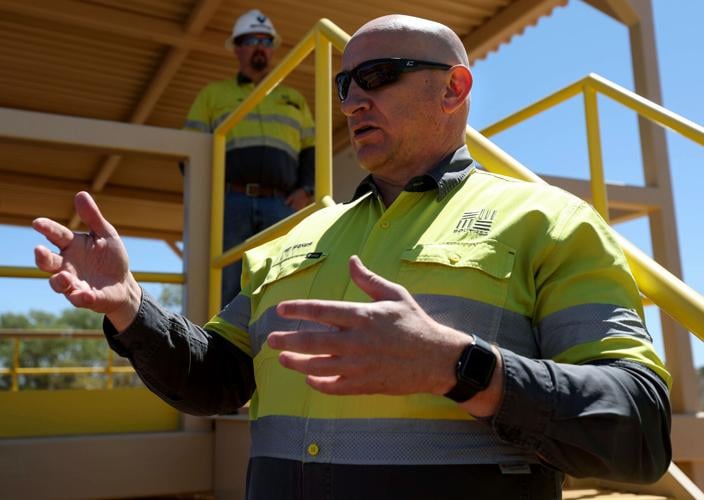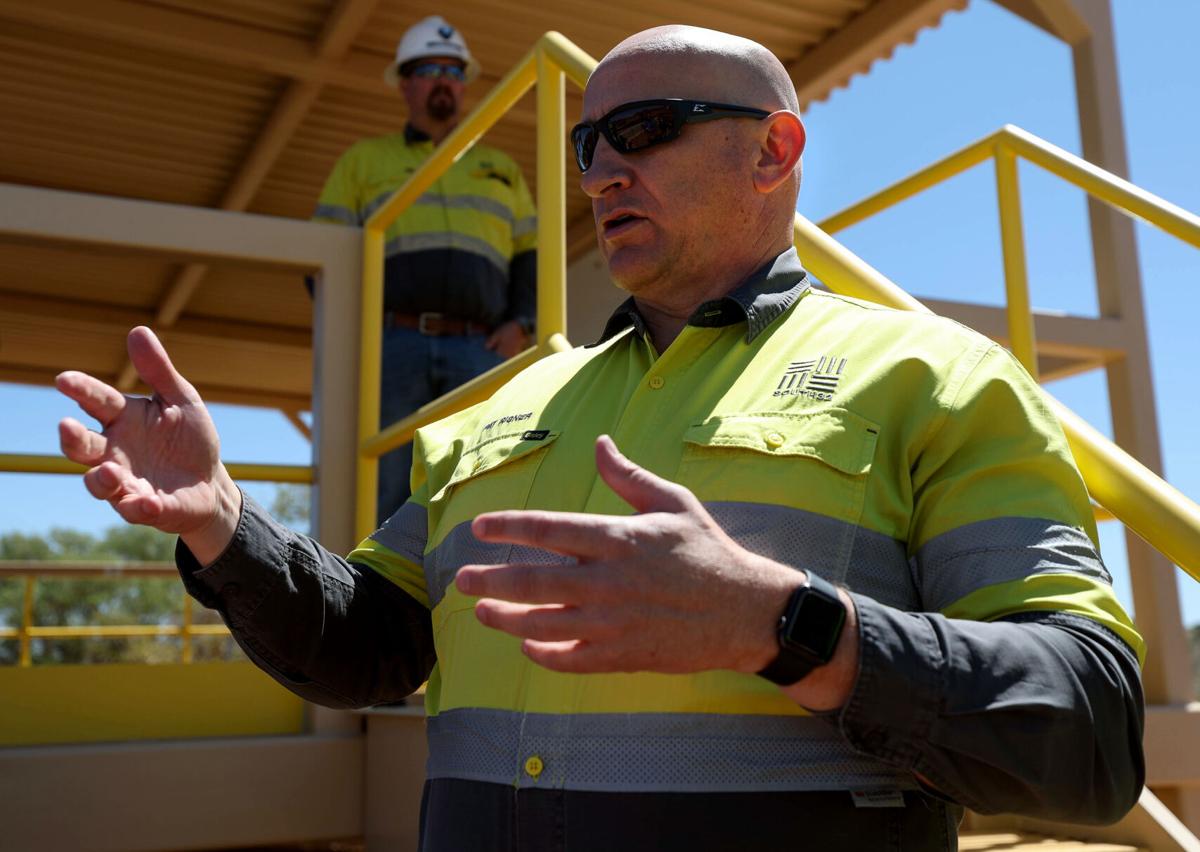The Hermosa mining project in the Patagonia Mountains has received a $20 million boost from the U.S. Department of Defense to accelerate production of a key mineral used in electric vehicle batteries.
The Defense Production Act grant, announced on May 17, is the first to be awarded for manganese, a federally designated critical mineral for which there currently is no domestic source.
Global mining company South32 hopes to create that supply from a deposit it has identified in the Patagonias, about 75 miles southeast of Tucson. The Australia-based company also expects to produce zinc, lead and silver at the $2.16 billion underground mine it has already started building in Santa Cruz County.
“This project represents an opportunity for the United States to create domestic supply chains for the minerals and metals important to national security,” said Hermosa project president Pat Risner in a written statement. “The Department of Defense funding will help develop this critical resource on a timeline that matches that urgency.”
South32 plans to combine the $20 million grant with $43 million of its own money to design and build an angled tunnel known as a “decline” into the manganese deposit from private land the company owns in the mountain range about 9 miles from the town of Patagonia.

The liner for a dry-stack tailings pile can be seen from the overlook at the South32 Hermosa mining project site in the Patagonia Mountains on April 25.
Defense officials said manganese is needed to make batteries for military and civilian applications, and South32 is poised to become the first sustainable, domestic producer of the “essential material.”
“This first DPA award for manganese production is a big step towards reducing import dependency throughout the battery material supply chain,” said Anthony Di Stasio, acting Deputy Assistant Secretary of Defense for Industrial Base Resilience, in a written statement announcing the grant.
Earlier this month, the U.S. Forest Service launched an environmental review of the Hermosa project, which will extend onto and below neighboring portions of the Coronado National Forest.
South32’s proposed facilities on forest land include a tailings pile, a powerline, an 8-mile access road and at least two infiltration basins for returning treated groundwater back into the local aquifer.
The Forest Service is collecting public input through June 10 on the scope of its National Environmental Policy Act review, which the agency hopes to complete in mid 2026.
Starr Farrell, public affairs officer for Coronado National Forest, said agency officials hosted a pair of public workshops last week that drew almost 180 people — 91 in Patagonia and about 85 in Nogales.
Concerns raised so far about the mining project include potential air and water pollution, heavy truck traffic, groundwater depletion and the disturbance or destruction of sensitive “sky island” habitat used by a range of endangered species, from Mexican spotted owls to jaguars.
South32 is already the world’s largest producer of manganese ore, but the mineral has not been mined in the United States since the 1970s.
Currently, there is no manganese metal production anywhere in North America. According to South32, more than 95% of the world’s battery-grade manganese gets processed in China.
With the $20 million grant, defense officials said, the Hermosa project should be able to deliver ore up to two years earlier than originally planned.
Risner said the funding should accelerate the engineering, design and sampling work that will “help us optimize our processing method,” but the manganese portion of the Hermosa project is still in what he called the “pre-feasibility phase.”
Ultimately, Risner said, any production schedule for the mineral will be directly tied to how — and how quickly — the North American electric vehicle battery business develops.
“We will progress at that market development’s pace,” he said.






